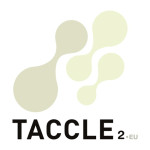Five minutes left in the chemistry lesson and no point in starting a new topic? Here you can find a nice interactive game on the periodic table. You can play it on the interactive whiteboard. Ask 2 students to come up to the board and if one of them makes a mistake, ask somebody else Full Article…
SimSound Game
A colleague of mine used the SimSound game (http://www.iop.org/education/teacher/resources/sim/page_41572.html) as an assignment spread out over one month. SimSound is an engaging multimedia game for 11-16 year olds that aims to use the context of music recording to introduce a range of concepts about waves. There are four Sim sound challenges: Fix the guitar riff – Full Article…
Reverse design
Show a picture of a technical system (f.i. microwave, thermometer, mobile phone…). Students has to define the criteria which the designer has determined for his technical system. Following questions can help to define the criteria for a corkscrew: How does the corkscrew look? Describe What are the user characteristics? Which are the criteria that the Full Article…
Pimp up your room
Ask your pupils to design their bedroom from scratch using http://www.viseno.com/ go to ‘Roomsketcher’ . Pay attention to the lighting of the room, where they are putting the switches giving reasons for their choices. After finishing their plans you let them draw the circuit diagram using the correct symbols for switch, light source etc. The Full Article…
My technology book
In each activity the pupils learn about technical principles like gear and belt drive systems, electrical circuits, energy, textiles technology, food technology…After a technical activity the students make a poster (Glogster), a digital book (Storybird) with the knowledge that they have constructed about that subject. In the next activity they can look up in that Full Article…
How much water does the ocean contain?
Let the students search on Google Maps to discover if the Earth contains more ocean than land. Explore the water cycle. Ask some questions like ‘Where do you think rain comes from?’, ‘Does it rain every where?’ After students have shared their ideas, they try to find some explanations. In Glogster they will make a Full Article…





 English
English Nederlands
Nederlands Deutsch
Deutsch Italiano
Italiano Español
Español Português
Português Română
Română Cymraeg
Cymraeg